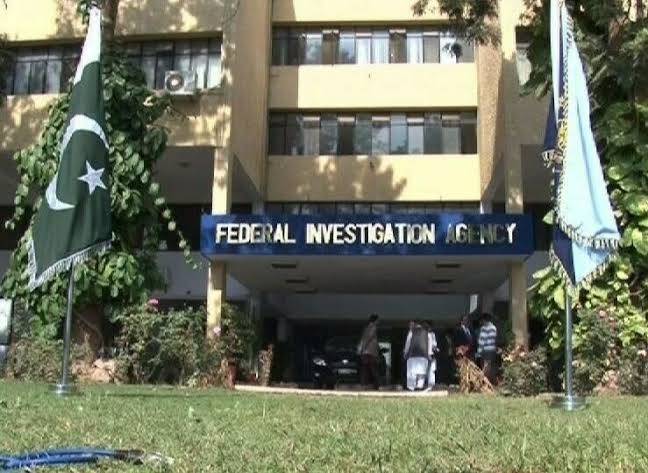FIA probes largest ever money laundering scam in Pakistan worth Rs 70 billion
Shares

In an unprecedented move, the Senate Committee on Finance and Revenue issued a directive on Wednesday, tasking the Federal Investigation Agency (FIA) with the formidable mission of investigating a money laundering and over-invoicing scheme of epic proportions. This elaborate conspiracy revolves around the import of solar panels valued at a staggering Rs. 69.5 billion and has sent shockwaves throughout the financial sector. Acting as a third-party investigator, the FIA now bears the responsibility of unmasking the intricate web of individuals and entities that played a role in this audacious operation.
Committee Chairman Saleem Mandviwalla wasted no time in emphasizing the sheer scale of this operation, contending that its execution would have been impossible without the complicity of commercial banks and the Federal Board of Revenue (FBR). He urged a comprehensive investigation into the potential involvement of these institutions, further deepening the complexity of the case. Senator Kamil Ali Agha, a committee member, heightened the gravity of the situation by pointing out that this money laundering scandal unfolded at a time when Pakistan's compliance with international anti-money laundering standards, as mandated by the Financial Action Task Force (FATF), remains under scrutiny.
In the aftermath of this revelation, customs officials found themselves facing scrutiny for their inability to prevent this extensive scam. Consequently, the committee directed the FBR to intensify its ongoing investigation into the matter, raising questions about the effectiveness of regulatory oversight. Simultaneously, the Deputy Governor of the State Bank of Pakistan (SBP) emerged as a vocal proponent of punitive action against the banks implicated in the scandal, underlining the severe repercussions of the situation. The committee meeting was marked by palpable tension as SBP and FBR officials engaged in intense exchanges of words.
The SBP Deputy Governor underscored the imperative of holding those responsible for the scandal accountable under the appropriate legal framework, underscoring the urgency of swift action. Furthermore, he revealed that the banks involved had flagged a staggering 37 suspicious transactions and submitted a comprehensive report detailing their findings. This revelation adds a layer of complexity to the ongoing investigation, emphasizing the far-reaching implications of this colossal financial fraud.
Wednesday witnessed an unprecedented development as the Senate Committee on Finance and Revenue issued a compelling directive to the Federal Investigation Agency (FIA). This directive mandated the FIA to launch a comprehensive investigation into a colossal money laundering and over-invoicing scheme that centers around solar panel imports valued at an astonishing Rs. 69.5 billion. The sheer magnitude of this scheme has reverberated throughout the financial sector, and the FIA has assumed the role of a third-party investigator charged with unearthing the intricate network of individuals and entities implicated in this audacious operation.
Committee Chairman Saleem Mandviwalla was resolute in his assertion that an operation of this scale could not have transpired without the complicity of commercial banks and the Federal Board of Revenue (FBR). He called for a thorough investigation into the potential involvement of these institutions, further complicating the unfolding narrative. Senator Kamil Ali Agha, a member of the committee, heightened the gravity of the situation by emphasizing that this money laundering scandal unfolded at a critical juncture when Pakistan's adherence to international anti-money laundering standards, as mandated by the Financial Action Task Force (FATF), remains under scrutiny.
In response to this revelation, customs officials faced stern criticism for their failure to prevent this elaborate scam. Consequently, the committee directed the FBR to intensify its ongoing investigation into the matter, raising questions about the effectiveness of regulatory oversight. Concurrently, the Deputy Governor of the State Bank of Pakistan (SBP) emerged as a vocal advocate for taking punitive measures against the banks implicated in the scandal, emphasizing the severe repercussions of the situation. The committee meeting was characterized by palpable tension as SBP and FBR officials engaged in heated exchanges.
The SBP Deputy Governor underlined the urgency of holding those responsible for the scandal accountable within the framework of applicable laws, emphasizing the need for swift action. Additionally, he disclosed that the banks involved had flagged a staggering 37 suspicious transactions and submitted a comprehensive report outlining their findings. This revelation adds a layer of complexity to the ongoing investigation, underscoring the far-reaching implications of this monumental financial fraud.
Wednesday marked a significant turning point as the Senate Committee on Finance and Revenue issued a compelling directive to the Federal Investigation Agency (FIA). This directive assigned the FIA the monumental task of conducting a thorough investigation into a massive money laundering and over-invoicing scheme surrounding the import of solar panels valued at an astonishing Rs. 69.5 billion. The audacity of this scheme has reverberated throughout the financial sector, prompting the FIA to step in as a third-party investigator tasked with unraveling the complex web of individuals and entities involved.
Committee Chairman Saleem Mandviwalla emphasized that an operation of this magnitude could not have taken place without the involvement of commercial banks and the Federal Board of Revenue (FBR). He advocated for a comprehensive investigation into the potential complicity of these institutions, further complicating the unfolding narrative. Committee member Senator Kamil Ali Agha underscored the gravity of the situation, noting that this money laundering scandal unfolded at a critical juncture when Pakistan's compliance with international anti-money laundering standards, as stipulated by the Financial Action Task Force (FATF), is being closely monitored.
In light of this revelation, customs officials faced sharp criticism for their failure to prevent this elaborate scam. Consequently, the committee directed the FBR to intensify its ongoing investigation, raising serious questions about the effectiveness of regulatory oversight. Concurrently, the Deputy Governor of the State Bank of
